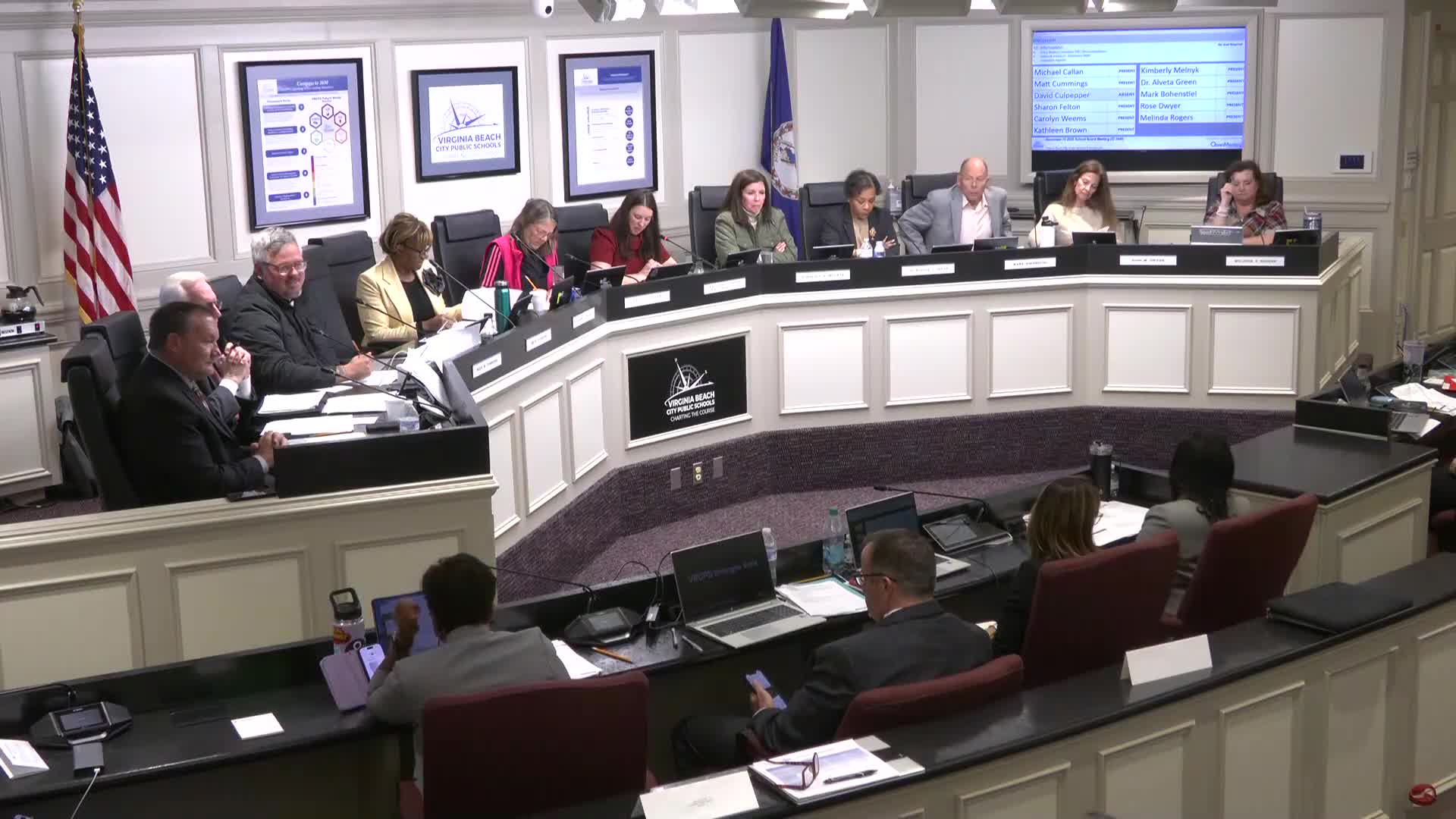Virginia Beach board debates collective bargaining and legislative priorities; committee had not added bargaining to agenda
Get AI-powered insights, summaries, and transcripts
Subscribe
Summary
Trustees discussed whether to add collective bargaining to the division’s legislative agenda after public testimony; legal counsel warned of high implementation costs and administrative burdens while some trustees urged further study and inclusion.
The School Board spent a prolonged portion of its Nov. 10 meeting debating whether to include collective bargaining on its legislative agenda for the 2026 General Assembly. Legislative consultant Joel Andrus outlined the division’s priorities — rebenchmarking, teacher recruitment, mental‑health funding, assessment reform and capital improvements — before trustees focused on whether to add collective bargaining.
Board attorney Cammy Linnetti said the experience of other divisions shows collective bargaining can be costly and time consuming to implement: "It's very expensive to implement," she said, citing multi‑year legal fees and the need for additional staff to manage bargaining. Linnetti told trustees some divisions hired outside counsel and added several staff members; she cautioned that Virginia’s budget rules limit what can be bargained in localities.
Several trustees — including Miss Rogers, Mister Cummings and Miss Dwyer — urged further analysis and noted national research showing possible retention benefits; others warned about upfront costs, administrative complexity and the statute’s restrictions. The legislative committee had voted 2–1 not to add collective bargaining to the proposed agenda; trustees disagreed publicly about whether committee recommendations should foreclose full board consideration.
The board did vote to approve support for VSBA legislative proposal number 3 (assessment reform edits) and approved other legislative priorities presented by the committee. Trustees agreed to continue studying collective bargaining, with some asking administration and counsel for additional data and cost estimates before bringing a formal legislative ask to the board.
